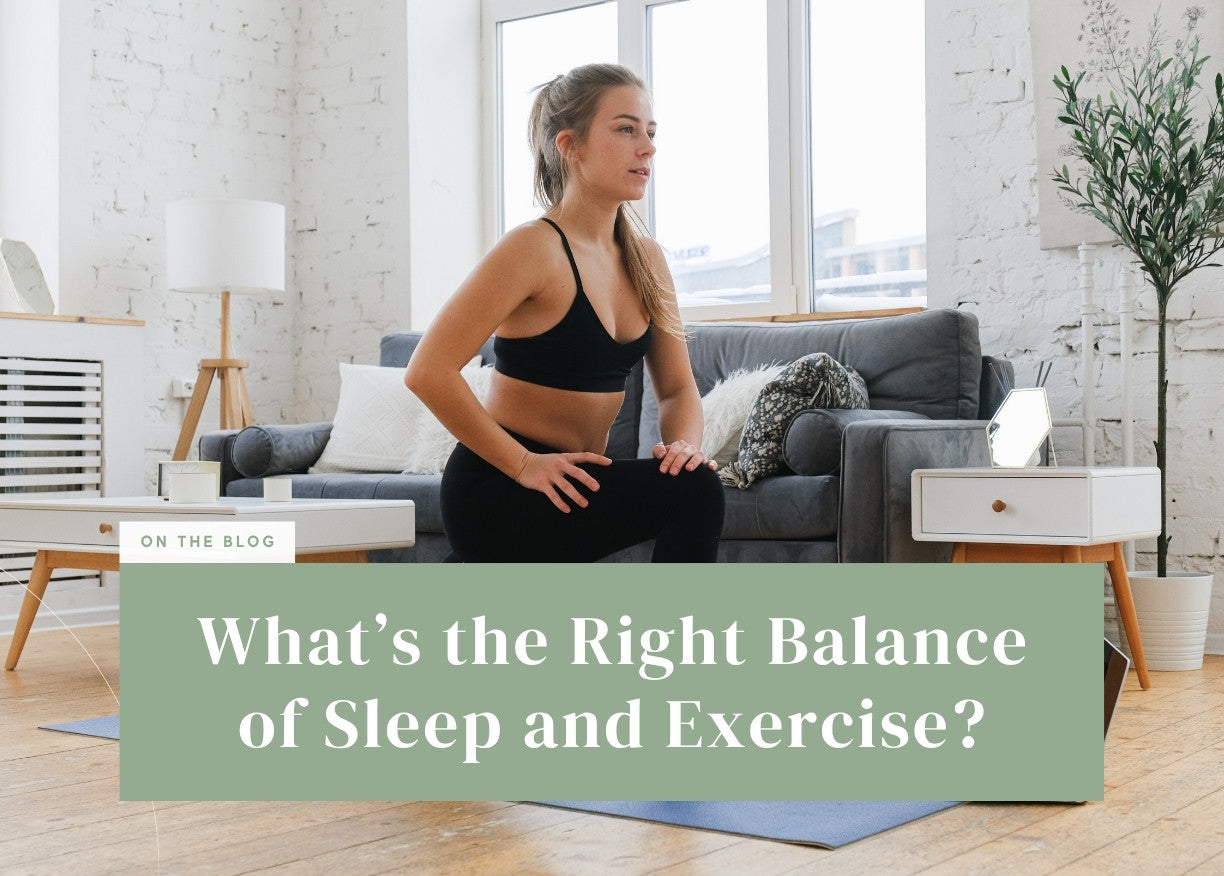What’s the Right Balance of Sleep and Exercise?
A few months ago, I decided to go all-in on my health. I started working out five days a week—cardio, weights, you name it. But instead of feeling better, I started waking up exhausted. My sleep got worse. I was sore, cranky, and dragging through the day.
It turns out I wasn’t alone. Many people trying to “get healthy” push themselves hard physically... without realizing that sleep and exercise don’t just coexist—they depend on each other. And when they’re out of sync, everything suffers.
So how do you find the right balance between sleep and exercise? Here’s what the research (and real-life experience) says.
1. Why Sleep and Exercise Need Each Other

Exercise helps you fall asleep faster, improves sleep quality, and boosts deep sleep.
Sleep, in turn, improves exercise performance, muscle recovery, and even motivation to move.
But there’s a catch: if you overtrain or sleep too little, it backfires. Inadequate sleep increases your risk of injury, slows recovery, and messes with hormones like cortisol and growth hormone.
Bottom line? You can’t separate the two.
2. How Much Sleep Do You Need If You Exercise?

If you’re doing moderate exercise (like walking, light lifting, yoga), aim for 7–9 hours of sleep.
If you’re training hard—HIIT, running, heavy lifting—you may need 8–10 hours, depending on age and intensity.
Pro tip: You might not need more hours, but you do need better quality. Deep sleep is when most physical recovery happens.
3. Should You Work Out If You’re Sleep-Deprived?

You can, but be smart.
A light walk or yoga session can actually help reset your body and improve sleep the next night.
But skip the intense workouts if you’ve had fewer than 5 hours of sleep—your reaction time, muscle function, and mental focus are impaired, and injury risk spikes.
Instead, focus on getting back into a healthy sleep rhythm first.
4. Does Evening Exercise Hurt Your Sleep?

Not necessarily.
Old advice said to avoid working out at night, but recent studies show that for most people, evening workouts don’t disrupt sleep unless they’re intense and end within 1 hour of bedtime.
🚫 What to avoid:
-
Intense cardio at 9:00 PM
-
HIIT right before bed
✅ What’s okay:
-
A 6:00–7:00 PM workout
-
Light strength training
-
Evening yoga or stretching
5. Recovery: Where the Magic Happens

Exercise doesn’t build strength—recovery does.
That’s where sleep comes in. While you sleep, your body:
-
Repairs damaged muscle fibers
-
Replenishes glycogen stores
-
Regulates inflammation
-
Balances hormones (like testosterone and cortisol)
And this only happens when you reach deep, uninterrupted sleep.
That’s why your sleep environment matters as much as your workout plan.
Final Thoughts: Build a Healthy Sleep–Exercise Loop
-
Sleep well → perform better → recover faster
-
Exercise smart → sleep deeper → wake up stronger
And if your sleep setup is fighting you (like a lumpy mattress or overheating), it’s time to fix that.
The Honey Hybrid Organic Mattress from Sweet Zzz offers adaptive support and breathable materials to help your muscles recover the way they’re meant to. Pair it with our cooling Plant-Based Pillow, and your body gets the comfort it needs to recharge—no matter how hard you train.




